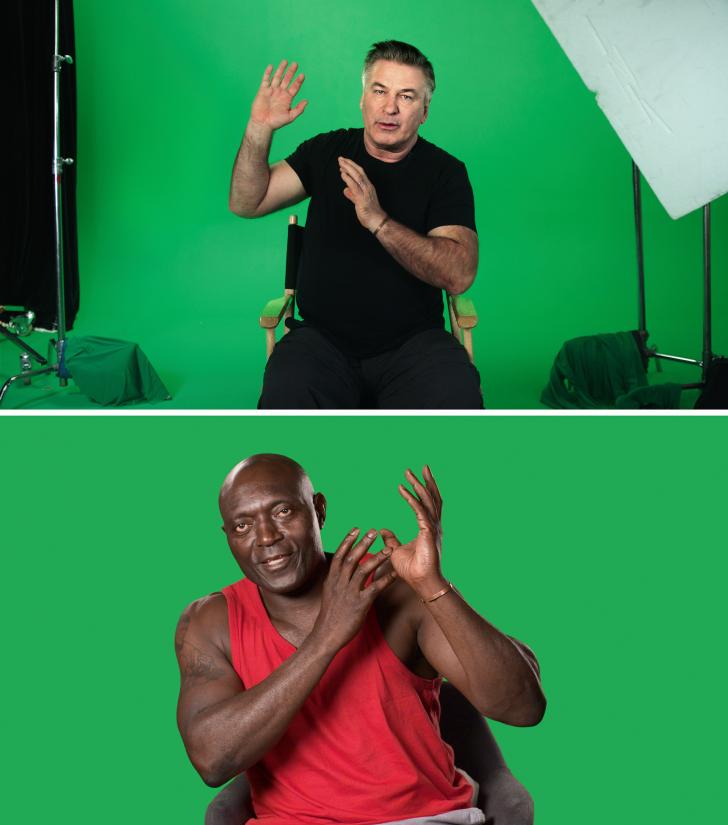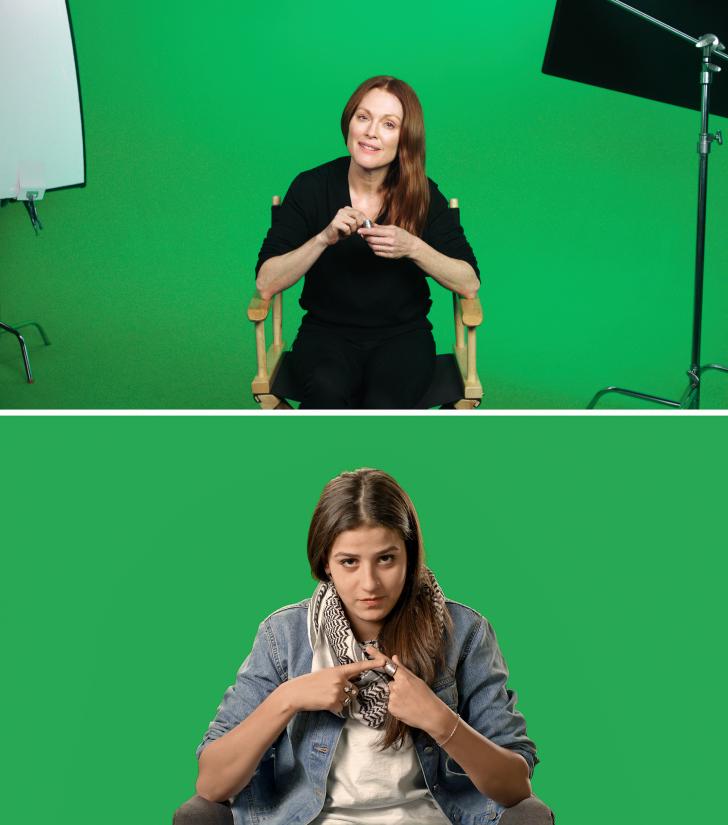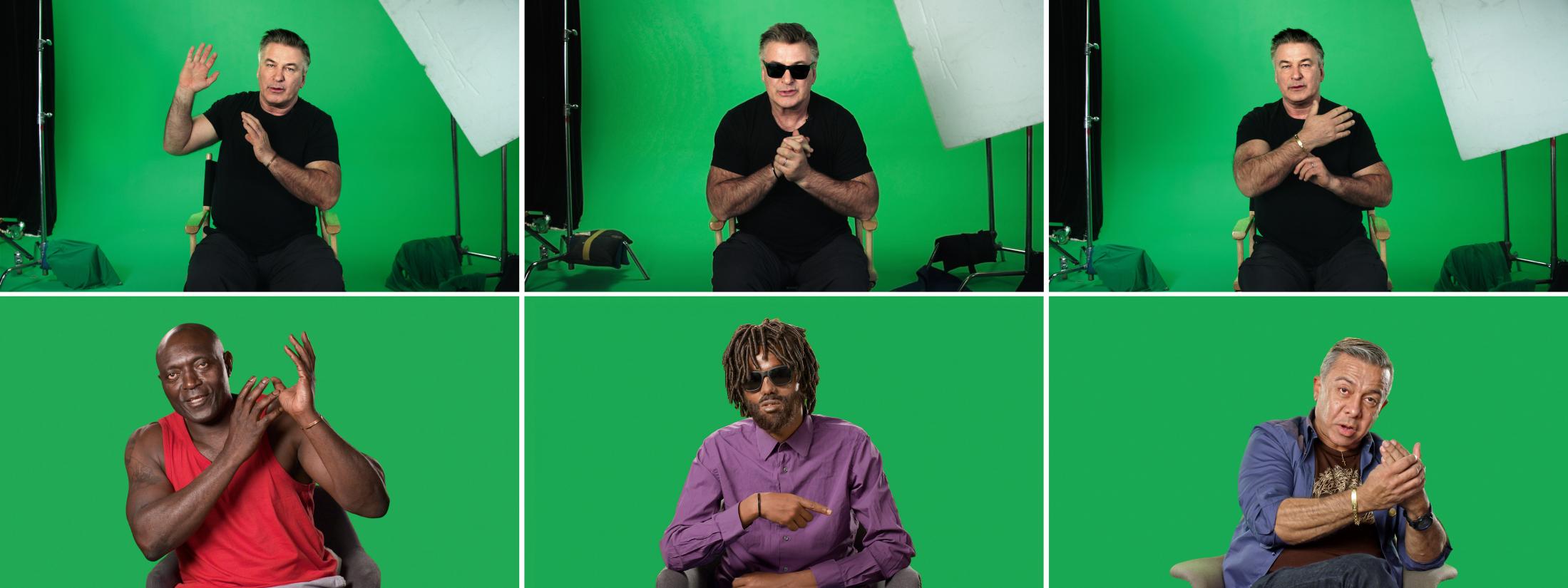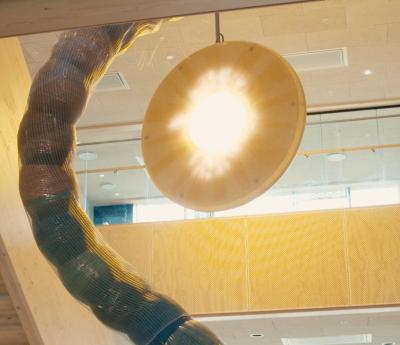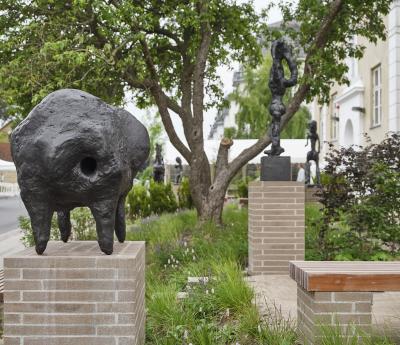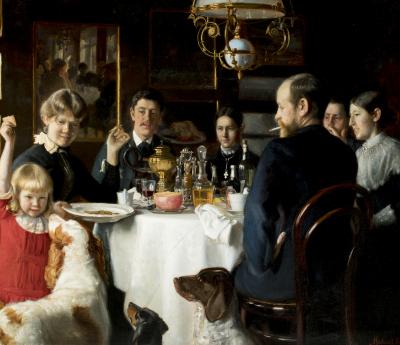What kind of stories do we choose to listen to? Are we affected by melodramatic works of fiction while remaining untouched by real-life suffering? These are key questions for the South African artist Candice Breitz, who in her treatment of the refugee crisis puts media, power and emotions to debate in her video installation Love Story.
The faceless and the famous
Love Story revolves around video interviews with six refugees: a refugee from war-torn Syria, a former child soldier from Angola, a rape victim from the Democratic Republic of Congo, a transgender activist from India, a political dissident from Venezuela and a young atheist from Somalia, each of them sharing his or her dramatic personal story.
The artist then boiled 22 hours of footage down to a script that was re-enacted by Hollywood actors Julianne Moore and Alec Baldwin. Their performance is what the audience first encounters in the installation. In a big-screen montage Moore and Baldwin retell highly stylized versions of the refugees’ stories against a backdrop of six screens showing the original interviews.
In Moore’s and Baldwin’s performance the artist borrows familiar effects from Hollywood productions: rapid cuts, the dynamic between a male and a female protagonist, emotionally charged performances and, not least, the casting of film stars. At the same time, however, the set is void of symbols and props, and the actors appear in their own clothes against a green screen. The dual impact of this presentation is an immediate sense of familiarity coupled with a sense of detachment from the familiar visual and narrative devices.
Ambivalent and unsentimental
Despite the title, Love Story is far from sentimental. Moore’s and Baldwin’s intense performances are revealed as acting and stand in contrast to the real-life refugees whose stories are being told. However, this explicit hierarchy is the source of the installation’s critical dimension. Breitz steers clear of moralizing messages to uncover fundamental conditions in a world shaped by the never-ending flow of images in popular culture and the mass media. Here, solidarity and empathy seem to be something that is mobilized by the use of the right effects rather than by the direct encounter with human suffering.
About Candice Breitz
Candice Breitz (b. 1972, Johannesburg) is based in Berlin and works mainly with photography and video art, which she uses to examine identity formations in globalized communities and the complex cultural conditions that shape them. In 2017 she represented South Africa at the Venice Biennale, where Love Story was one of the absolute highlights. Candice Breitz has had numerous solo exhibitions, including at the Kunstmuseum Stuttgart, The National Gallery of Canada in Ottawa, San Francisco Museum of Modern Art, Palais de Tokyo in Paris, Louisiana Museum of Modern Art and Moderna Museet in Stockholm.
